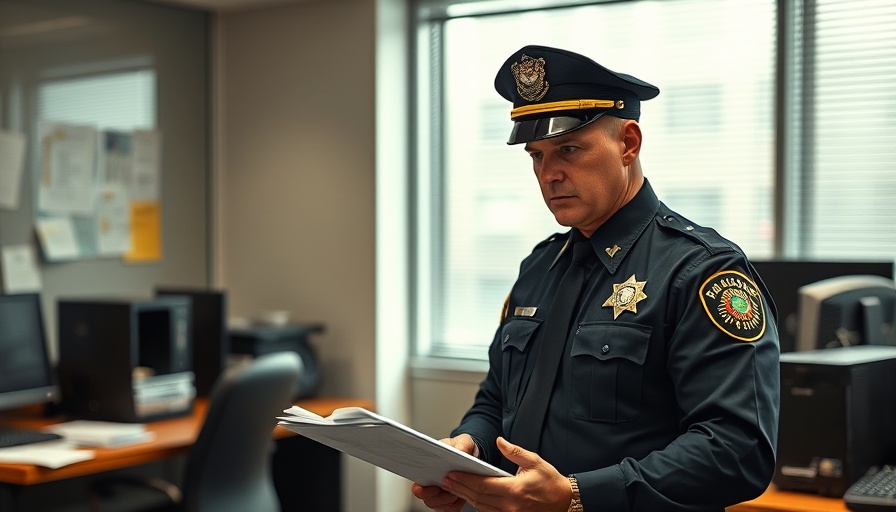
Revisiting Police Toughness in Light of Recent Videos
The recent footage that surfaced from a violent confrontation at Manchester Airport has ignited a fierce debate around police toughness and the rising dangers law enforcement officers face. The incident, which involved officers attempting to arrest Mohammed Fahir Amaaz, has become a crucial case study in understanding the complexities of police interactions with the public. As PC Lydia Ward testified in court, her experience during the scuffle left her feeling utterly terrified, prompting questions about the inherent risks officers endure on a daily basis. This raises a larger question about how police training and community relationships can be improved to prevent such incidents.
Historical Context of Police-Community Relations
Historically, the relationship between police and communities, particularly marginalized ones, has seen significant tensions. Copious studies illustrate that adverse interactions between law enforcement and community members can, in the long term, lead to an atmosphere of fear and distrust. The riots and violent protests over recent years demonstrate that when communities feel that they are being policed too harshly, the backlash can be severe. These events underscore the importance of procedural justice and community policing strategies that create an environment where trust can flourish, allowing for safer connotations of community safety.
The Role of Technology in Modern Policing
With technological advancements, many police departments have begun to integrate innovative tools, such as body cameras and real-time data analysis, to improve transparency and accountability. This is crucial in the aftermath of incidents like the one at Manchester Airport. Body camera footage can serve as both a teaching moment for officers and a source of reassurance for the community. However, it’s essential for law enforcement agencies to adopt clear policies on the use of this technology to ensure that it serves its intended purpose—enhancing public safety rather than infringing on the rights of individuals.
Crisis Intervention Strategies: A Path to Prevent Violence
Crisis intervention strategies are vital in reducing violence during arrests or confrontations. Research indicates that employing techniques that emphasize communication, empathy, and de-escalation can mitigate confrontations before they escalate into violence. Training that encourages officers to assess situations calmly and with an understanding of mental health issues faced by individuals can lead to more positive outcomes for both officers and civilians alike.
The Significance of Recruitment Innovation and Officer Wellness
As the Manchester Airport incident emphasizes, a proactive approach in the recruitment of law enforcement officials can yield long-term benefits for police departments. By focusing on attributes such as emotional intelligence, cultural competency, and community engagement during recruitment, police agencies might foster a force that actively seeks to build trust within their communities. Additionally, prioritizing officer wellness can help ensure that those responsible for enforcing laws are physically and mentally prepared for their demanding roles, reducing stress-induced incidents during difficult interactions.
Conclusion: Actions for Change
The Manchester Airport incident not only serves as a stark reminder of the perils faced by law enforcement but also highlights the need for a re-evaluation of current policing practices. Policymakers, law enforcement agencies, and community organizations must collaborate to innovate recruitment strategies, enhance crisis intervention training, and prioritize officer wellness programs. Ultimately, fostering a safer community requires transparency, accountability, and cooperative strategies that empower both officers and civilians alike.
 Add Row
Add Row  Add
Add 

 Add Element
Add Element 


Write A Comment